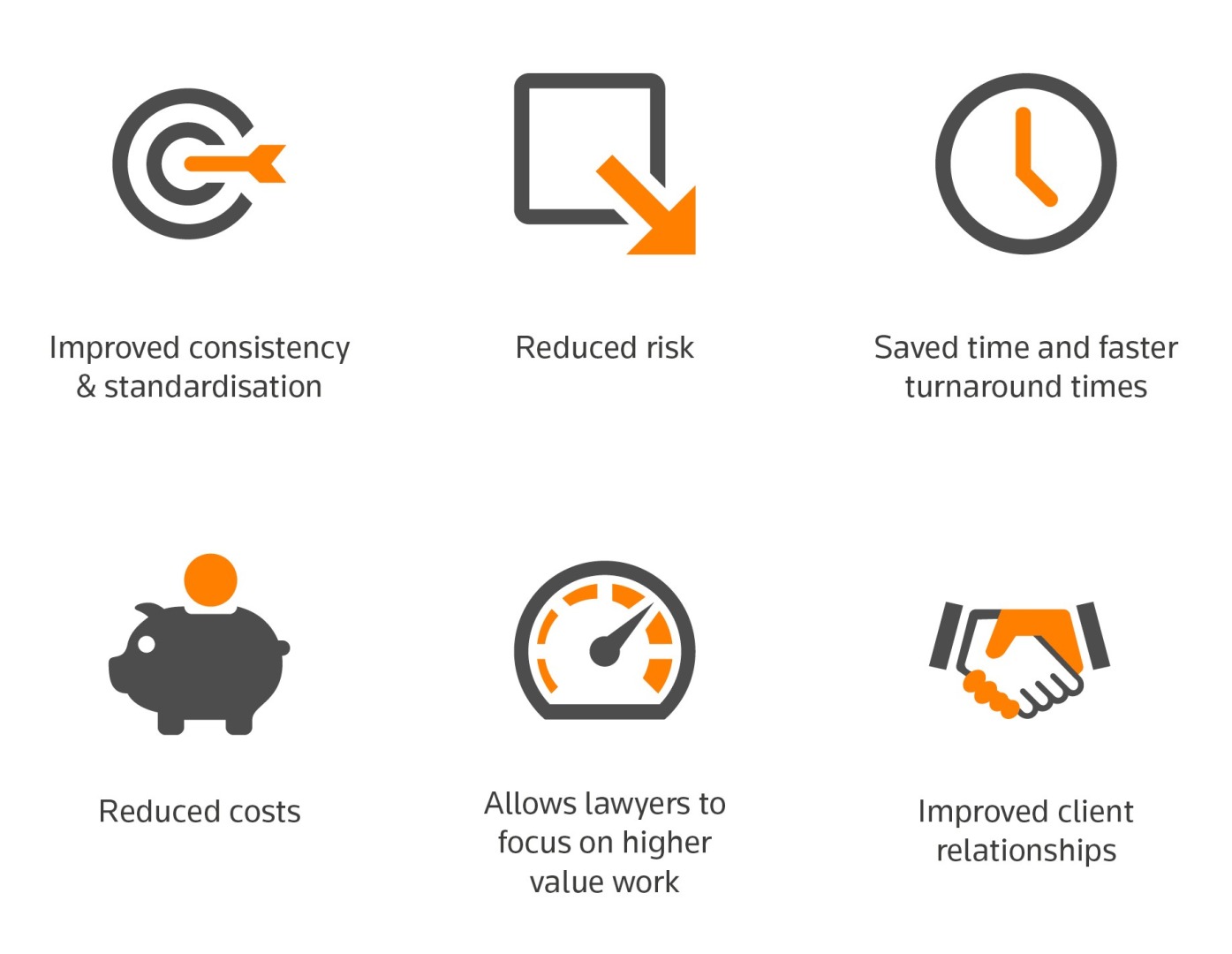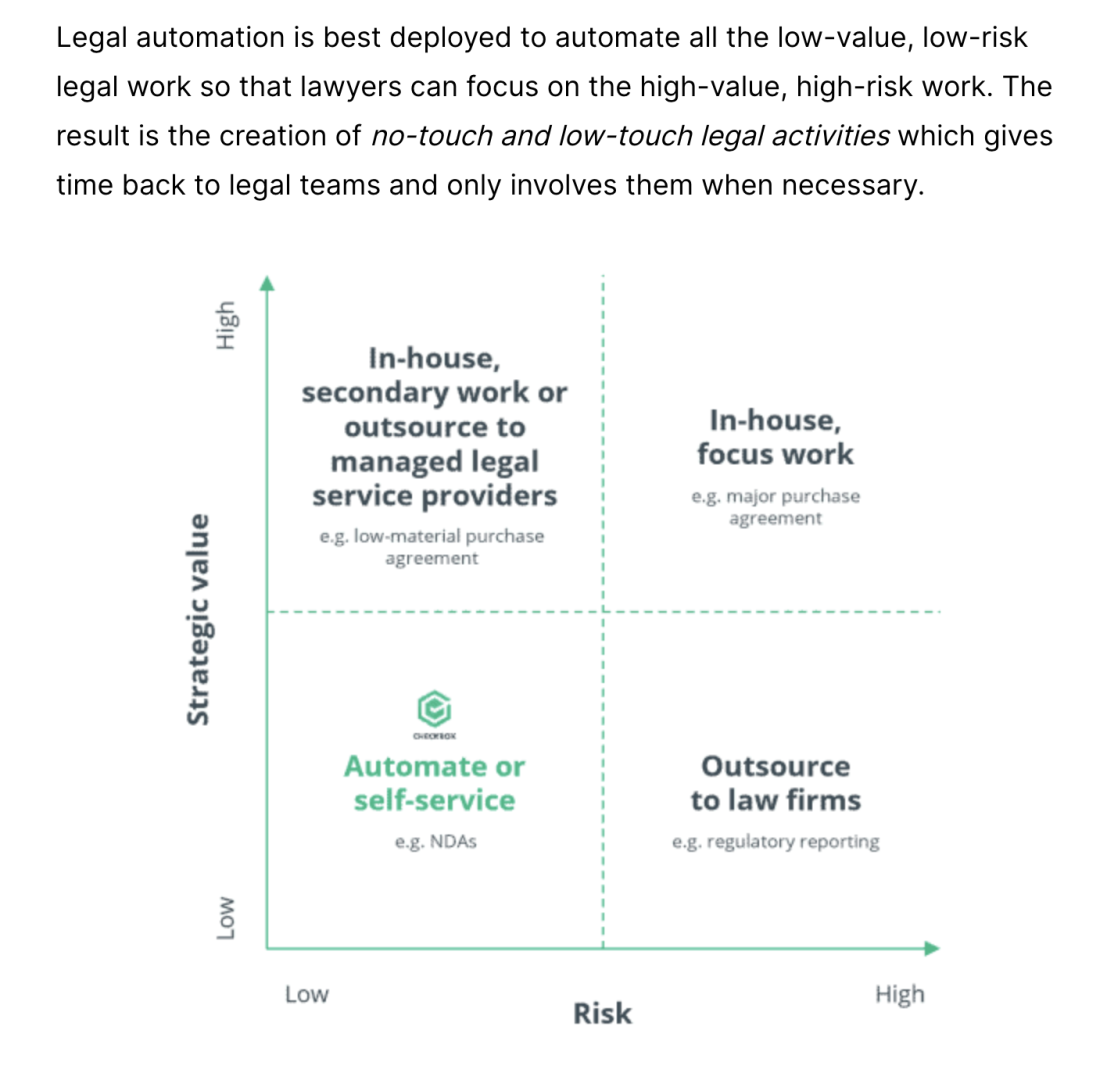
The Evolution of Legal Technology: Embracing Automation to Transform the Legal Industry
The legal industry has traditionally been slow to adopt technological advancements.
In recent years, there has been a significant shift towards embracing automation and cutting-edge technologies. This article explores the evolution of legal technology and its transformative impact on the legal profession.

1. Streamlining Legal Processes
With the advent of legal technology, repetitive and time-consuming tasks can now be automated, allowing legal professionals to focus on more complex and strategic aspects of their work. Legal research, document review, and contract analysis are some areas benefitting from automation, resulting in improved efficiency and reduced costs.
2. Enhancing Efficiency and Accuracy through AI-powered Solutions
Artificial Intelligence (AI) has revolutionized the legal industry by providing powerful tools for analyzing vast amounts of data. AI algorithms can identify patterns, extract relevant information, and provide insights to support legal decision-making. This technology not only saves time but also enhances accuracy and mitigates human error.
3. Improving Access to Legal Services: Breaking Barriers with Technology
Legal technology has the potential to increase access to justice by breaking down barriers such as cost and geography. Online platforms and virtual law firms have emerged, enabling individuals and businesses to access legal services remotely. This trend promotes inclusivity and expands the reach of legal expertise to underserved populations.
4. Protecting Data Security and Privacy Concerns in the Digital Age
The integration of technology in the legal sector raises concerns regarding data security and privacy. Safeguarding sensitive client information and protecting against cyber threats becomes paramount. Legal professionals must adopt robust cybersecurity measures and stay informed about evolving data protection regulations to maintain trust and confidentiality.
5. Empowering Legal Tech with Predictive Analytics and Machine Learning
The future of legal technology holds immense potential, particularly in the realm of predictive analytics and machine learning. By analyzing historical legal data, these technologies can predict case outcomes, anticipate legal issues, and provide valuable insights for strategy development. Embracing these advancements can give legal professionals a competitive edge.
6. Embracing Change: Overcoming Resistance and Adapting to New Paradigms
Despite the numerous benefits of legal technology, resistance to change persists within the legal industry. Cultural and organizational barriers often hinder the adoption of new technologies. By fostering a culture of innovation, providing training, and showcasing success stories, law firms and professionals can overcome resistance and embrace the transformative power of legal technology.
The Legal Industry Must Embrace Moder Technology to Evolve
As technology continues to advance, the legal industry has recognized the need to adapt and embrace automation.

From streamlining legal processes to improving efficiency, accessibility, and data security, legal technology has transformed the way legal professionals work. As the future unfolds, embracing change and staying abreast of technological advancements will be crucial for law firms and practitioners to remain competitive and deliver quality legal services in an evolving landscape.
Trending
-
1 SEO Mistakes That Could Be Costing Your Shopify Store Sales
Daniel Hall -
2 Strategies for Safeguarding Assets and Investments
Daniel Hall -
3 The Role of PR Firms in Crisis Management and Damage Control
Nitish Mathur -
4 How to Make Appealing Visuals for Your E-commerce Store
Daniel Hall -
5 The Competitive Landscape of Low-Cost Carriers in Belgium: TUI Fly Belgium’s Position
Daniel Hall





Comments